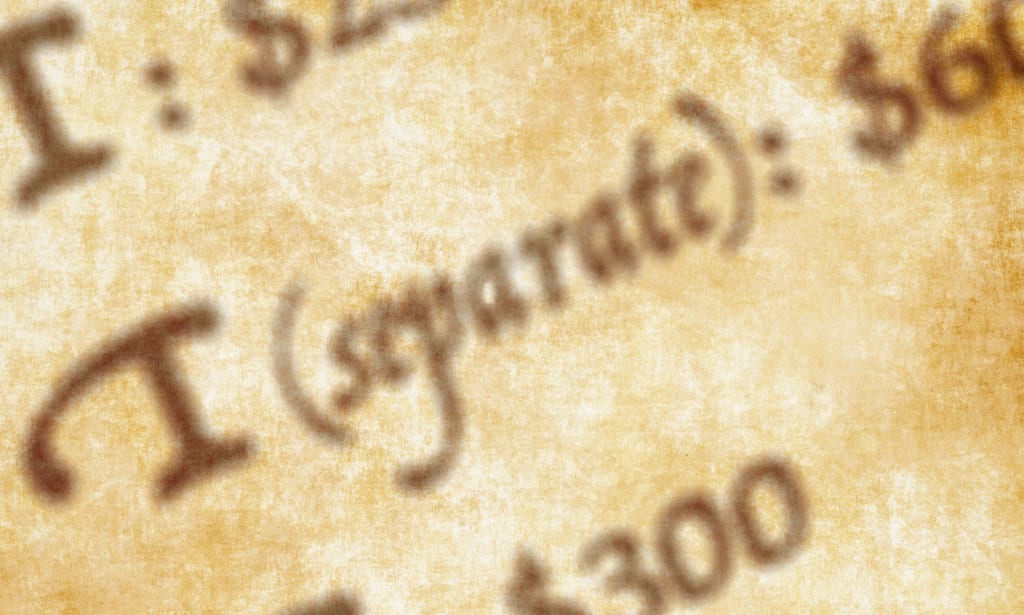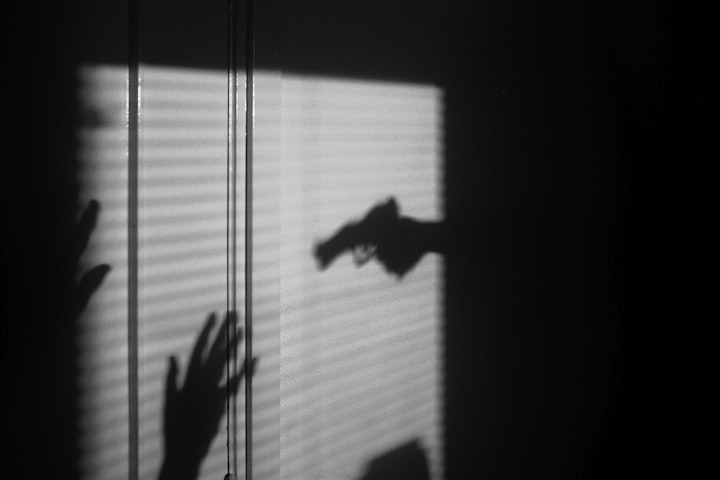The Urchin Who Would Not Drown
What is the cost of T?

When cold saltwater enters a wound, it feels like shattering glass on the nerves. His bicep throbbed, the skin rubbed away by friction from the beam he’d clung onto for life. The debris around him bobbed calmly within the submerged hold of the small wooden ship. Amongst the fodder, the grey skin of the other fellows swirled in and out of the strips of bright light that shined through the slats of the deck. The ripples of their spines peaked above the surface of the water, covered in the wet ragged shirts, their funeral shrouds, limbs still chained to their bunks.
Through the brine, just a short distance under the surface, the prisoner is startled by the sweet empty eyes of his brother peering up, the curling locks of his hair a nest of sea snakes dancing to the beat of the hollow rapping of loose barrels against the hull. The expression of desperate yelling on his frozen face bubble up memories of childhood when the prisoner stole his brother’s bowl of stirabout and received a vicious primal scream in return. That might have been their only meal that day, but it was just a joke. He gave it back. He always did.
After their parents died, the brothers shared everything, even the consequences of their escape from starvation. The jingling of chains made them realize that fighting and stealing from other poor people is not the path out of poverty. If one is already alienated by class, you need all the friends you can get. That tiny piece of wisdom came too late. Now adults, they realized that their fates had been sealed at birth. It was socially preordained. When they were dubbed irredeemable in prison and then sold off in the dead of night to line the velvet pockets of the crown. They sailed east to the Caribbean to wither in the sun on a plantation, then, only days ago, sold again and put on a boat to America to dig in a coal mine until they were buried in their graves from the lungs outward.
The storm that crashed the ship was sudden but predictable. All one needed to do was look out from the Haitian shore to witness the sea’s cheeks swelling, ready to blow, like a mother on the scrapped knee of a child, but there was no succor here. Unfortunately, prideful of his ability to stay on schedule and meticulous with his small black notebook, the Captain’s greed overruled his senses. He quickly ordered his crew to lock the newly purchased prisoners into the hold previously used to house fruits and rum. White prisoners plucked from the slums of the British Empire were deemed far more valuable than any pineapple or barrel of rotgut, and this, along with his life savings, would purchase the Captain another new ship to spark the beginning of his own tiny floating empire.
Looking painfully away from his brother, the prisoner swam weakly for an opening, the chains on his ankles still attached to broken planks attempting to pull him back into servitude. Having held onto the support beam for hours in the cold water, his joints burned like embers flashing sparks into the sky. Crawling out of the ship onto the listing deck, the saltwater gurgled in his lungs, causing him to cough and spit.
Only a stone’s throw away, the battered shoreline was a dumped toy box of bodies and flotsam strewn all the way up to the forest line. Realizing he’s the only survivor, each breath fed the carnivorous guilt within him.
The storm had been beyond the captain’s abilities as the jollyboat had neither been launched nor untethered from the deck. Freeing the pins from the broken pieces of wood at the end of his ankle chains, he remained bound by the cuffs, the chain ends dragging behind clattering loudly like his past. He traversed the pitched deck to untether the small six-man rowboat when he peered through the cracked window of the captain’s quarters and saw a chest bobbing inside amongst loose furniture and papers.
He untied the jollyboat and let it slide down the deck with a splash, the ores ratting inside, under the seats. Holding on to the rope he led it to the cabin and tied it off. Dipping under the water, he entered the small room, took a breath in the air pocket, and pulled the chest back out the door. He floated with it back to the surface and held onto it as he pulled himself onto the jollyboat. With one painful yank, he loaded the chest in. Using an ore, he broke the lock, unlatched the clamps keeping it airtight, and flung it open.
He chuckled through his gnashed teeth. The greed of the Captain did not disappoint. At least $20,000. Enough to get him back to England and started a new life outside of the filthy gutter in which he’d been born. That notion was immediately shattered by reality. He’d witnessed clueless nobles and their rotten arrogance on the streets. The thought of being one of them made him want to drink the ocean and drown the pompous British island whole. Perhaps instead, he would row to the nearest port and become an American. He would buy some land and a horse, over-pronounce his R’s, and breathe the free air deeply until the London soot was completely extricated from his lungs.
That made him think of his brother, frozen in his last breath, waving softly just under the surface of freedom. Bound by a chain that couldn’t be broken, to which someone else held the key. Eternal servitude to the sea to be picked clean by scavengers. It was something that the brothers understood. Scavengers eating scavengers.
On top of the money sat the captain’s black notebook. He opened it and began reading. Although more practical matters were put before education in his family, he’d learned his letters and words. Luckily, the captain was no writer, sticking strictly to dates, names, figures, and short side notes. Amongst the names, he came across him and his brother opposite the figure $150 with a note T (separate): $600 each. The first number is what they were bought for, the next was what they were worth. “T” is for trouble. Irredeemable and better off separated.
All of the names on the list were T’s. T for trash. T for throwaway. T for terminate. Send them to the bottom of life, then make them dig further.
He rowed the boat to where his brother was still suspended under the deck, reaching with dead hands for something better. The prisoner wasn’t kidding himself; they were city urchins. He didn’t know how to grow a plant or ride a horse. Neither would he be a noble lord in Britain nor American but no longer would life wash over him. The poor don’t receive birth certificates, but even if they did, none would be labeled with a “T.” Not right away. That came later when their options ran out. When servitude stopped being voluntary.
The prisoner threw the book into the water and watched the ink blur on the pages, the past going blind until it could no longer guide the future. Rowing slowly along the coast toward the port in the distance he thought about his next move. His only move. Tonight, he would break his chains and toast his brother. Tomorrow, he would change a young life for the better.
No one is irredeemable.
About the Creator
Jeremy Cairns
Writing in the front, ink in the back.






Comments
There are no comments for this story
Be the first to respond and start the conversation.